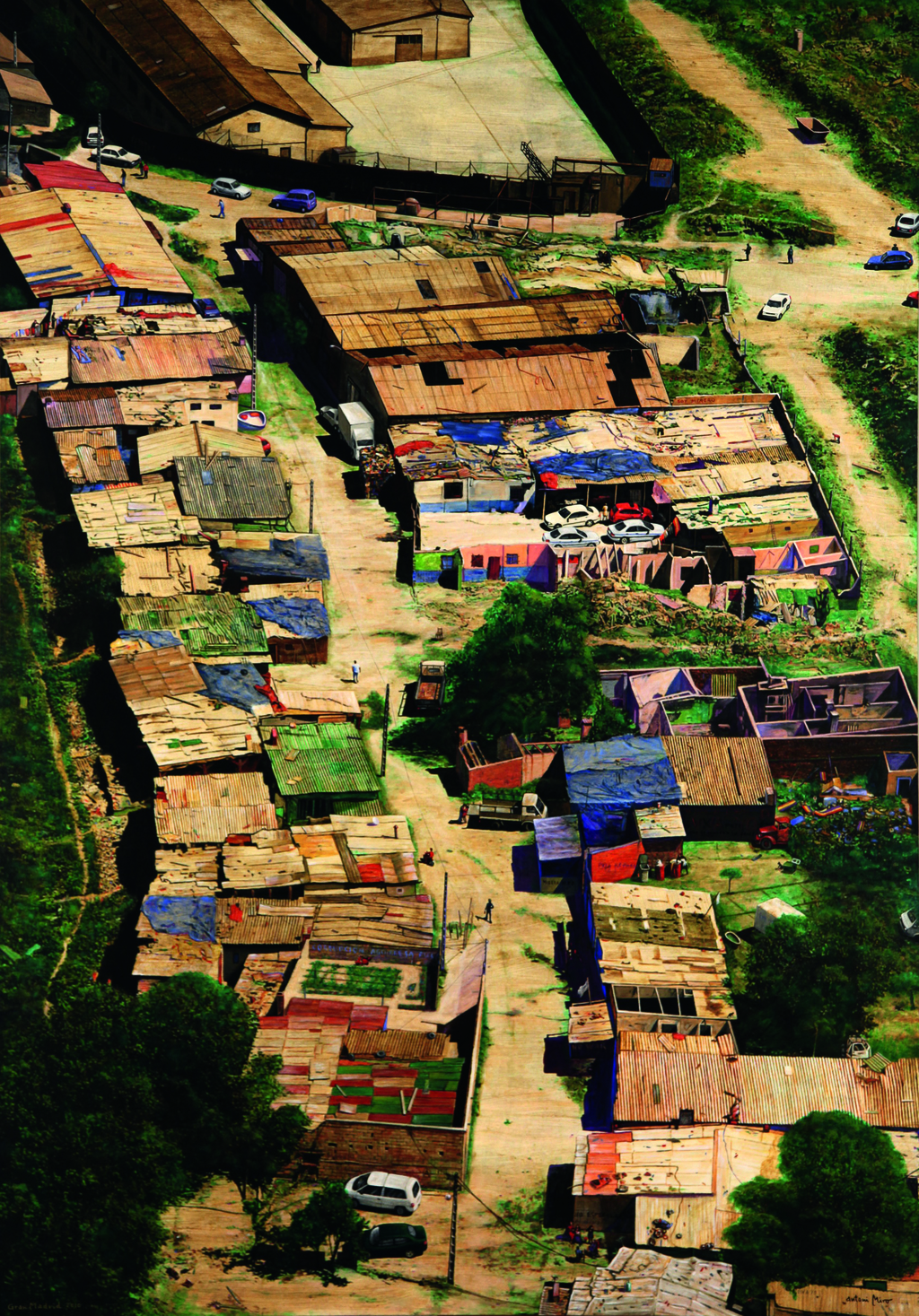Gran Madrid (Greater Madrid)
Some of Miró’s works in his “Sense Títol” (Untitled) series tackle some aspects of social conflict. In them he refers to scenarios in which several social tensions take place. Thus, in many occasions, he depicts the image of a beggar in the streets of the city centres. This painting, however, sheds light on a radically different urban setting, even if the underlying theme is similar.
The subject in this case is still misery, and its representation through contrast with opulence is again reinforced, as usual during this period, even though this might only be hinted at by the grandeur suggested in the title. The picture depicts a shanty town of the outskirts of Madrid, one of those to which thousands of drug addicts make their way to get their daily fix. This suburban district nestling close to the town of Vallecas was considered to be Europe’s biggest drug ‘hypermarket’.
The bird’s-eye view seems realistic. The meticulousness with which it is painted gives it great plausibility. Yet Miró has made changes to incorporate new symbols and messages not found in real-life Barranquillas. This is a proof of our high tolerance of blighted urban settings, which allows them to be imperceptibly deformed and complemented. The addition of the flags of Spain’s Second Republic (1931- 39) and de-contextualised daubings are cases in point. In other words, the alien is superimposed on the real, creating a complementary meaning in the process.
There are two clear contradictions in this picture: the contrast between urban decay and wealth and the tension between reality and what is represented as such. The former is directly depicted, for example, in the new-looking vehicles corralled in a shack-ringed courtyard. The latter requires a slower, subtler reading of the picture in order to notice what alien elements have been brought to the composition as if they really belonged there.
Santiago Pastor Vila
